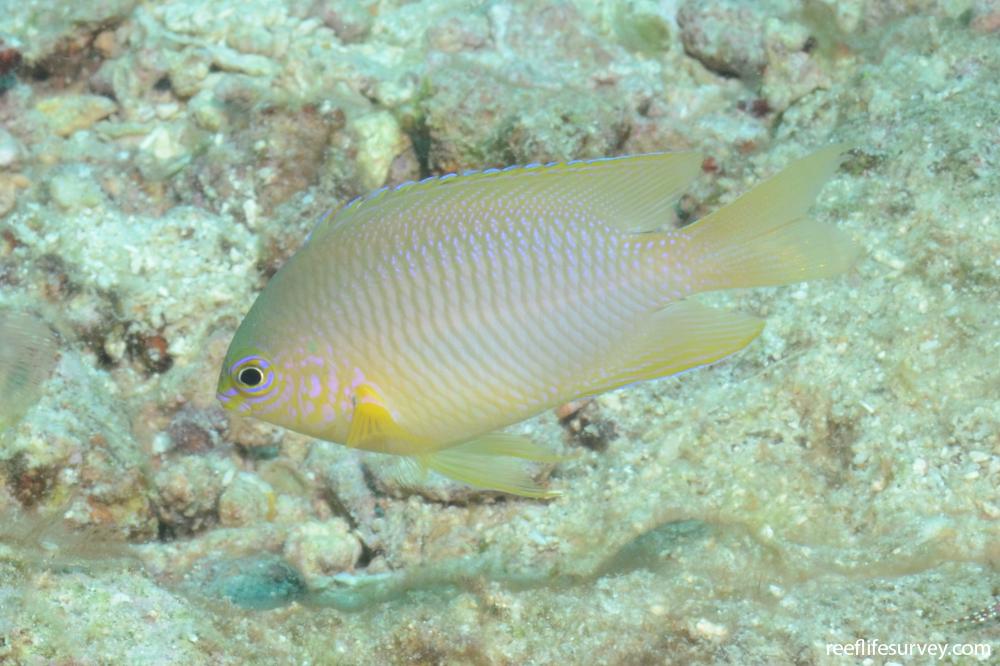Pomacentrus amboinensis
Ambon damsel | Pallid Damsel-fishSame Genus
Distribution
Tropical Indo-Pacific
Description
Yellow body, small dark earspot and slightly larger spot at pectoral fin base. Usually with blue or purple lines on face and sometimes spots on body. Large ocellus on rear dorsal fin of juveniles disappears with age. Yellow body often pale and/or tinged with blue or purple. Most common damselfish on many sheltered reefs. Also very common P. moluccensis (lemon damsel) is brighter and has more solid yellow colour on tail and fins. P. amboinensis can also be identified by its behaviour as it usually lives at the foot of the reef over sand and rubble rather than live coral.
Information
Max Size: 9 cm
Sea Temperature Range: 21.3-31.2°C
Depth: 2-40m
Habitat Generalization Index: 10.68
Also referred to as the SGI (Species Generalisation Index), this describes the habitat niche breadth of the species. Species with values less than 15 are found in a relatively narrow range of reef habitat types (specialists), while those over 25 may be found on most hard substrates within their range (generalists). Learn more here.
Conservation and Rarity
IUCN Status: Not Evaluated
Occurrence: Common (36.8% of sites)
Occurrence describes how often the species is found on surveys within its distribution. It is calculated as the % of reef sites surveyed by RLS divers across all the ecoregions in which the species has been observed
Abundance: Many (34 per transect)
Abundance is calculated as the average number of individuals recorded per RLS transect, where present.










































![Pomacentrus sp. [rhodonotus]](https://images.reeflifesurvey.com/0/species_f2_58d8856ad74db.w400.h266.jpg)





